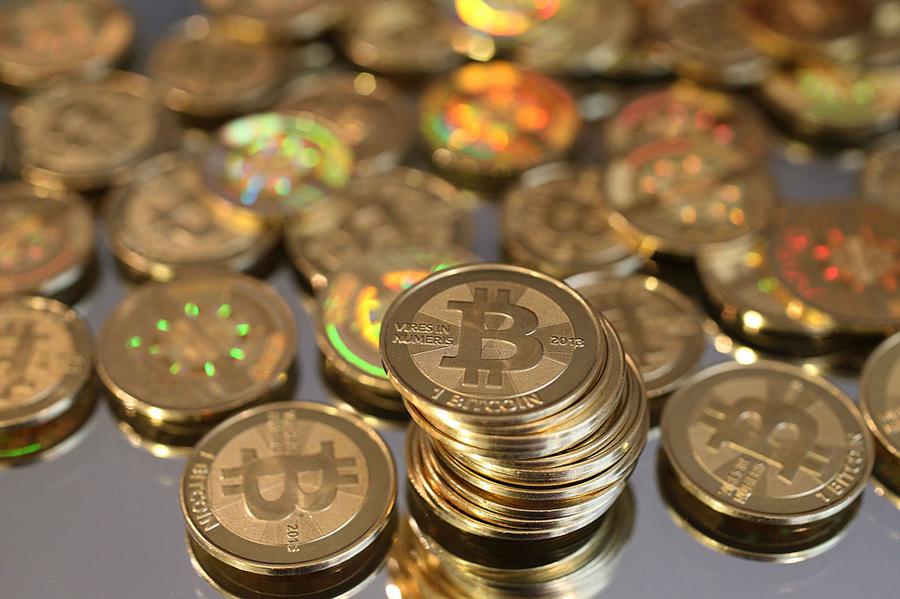Have you ever looked down at the floor of a crowded bar and spotted a $20 bill up for grabs? Have you ever slipped your arms into a rarely worn jacket and discovered a wad of forgotten cash in one of the pockets? I once found $85 worth of crumpled bills on the floor of a club in Los Angeles. Judging by my reaction, you would have thought I found $10,000. The point is, finding money unexpectedly is easily one of the best feelings in the world. So I can only imagine what it would feel like to accidentally stumble upon a million fortune totally out of the blue. Sounds crazy right? Well that's exactly what recently happened to a Norwegian student named Kristoffer Koch.
Four years ago, Kristoffer Koch was sitting in his dorm room in Oslo, Norway, writing a thesis paper about encryption technology. During the course of his research, Kristoffer stumbled upon a fascinating new example of how encryption technology was being used to create a brand new virtual currency called Bitcoins. Bitcoins, in case you've never heard of them, are a completely anonymous, fully encrypted, virtual currency that only exists on the internet. They were created in early 2009 by an anonymous computer developer who goes by the pseudonym "Satoshi Nakamoto". Bitcoins are traded electronically back and forth between encrypted digital "wallets" in exchange for goods and services, pretty much just like any other currency. The value of a single Bitcoin is determined much like the price of a stock, as demand increases, so does the price and vice versa.

George Frey/Getty Images
Bitcoins may ring a bell if you read our article last month about the arrest of Ross Ulbricht, the 29 year old mastermind behind the virtual drug black market Silk Road. Up until October 3rd, Silk Road was essentially the eBay of buying illegal goods and services. Anyone with an encrypted browser could log onto Silk Road to buy drugs, weapons, fake IDs, even real life hit men. Users on Silk Road exchanged Bitcoins to barter their illegal goods and services all over the world. Bitcoins allowed the transactions to occur completely anonymously, without either party ever knowing the other's identity or location.
But let's get back to the story of Kristoffer Koch. Back in 2009, when Kristoffer was writing his thesis, Bitcoins had existed for just about three months. At the time, a single Bitcoin was trading at $0.0054. A little more than half a penny. On a whim, Kristoffer decided to plunk down 150 Kroner, roughly $26.6 US dollars, to purchase 5000 Bitcoins. He then proceeded to forget about his purchase entirely for the next 3.5 years.
The next time Kristoffer Koch thought about Bitcoins was in April 2013. A friend who knew about Koch's interest in encryption, emailed him a newspaper article that described a recent explosion in the value of Bitcoins. His memory immediately triggered and Kristoffer scrambled to locate his long-forgotten investment. There was just one problem: He couldn't remember his password for the secure digital wallet that held his coins. After several agonizing hours of failed attempts, he finally cracked the code.
Can you imagine Kristoffer's shock and surprise when he saw that the 5000 Bitcoins he purchased in 2009 for $26.6 had grown to be worth $1.25 million!!! Obviously, between 2009 and 2013, the price of a single Bitcoin had increased dramatically. After trading for less than a dollar at the end of 2009, the price per coin hovered around $20 in 2010. Between 2010 and January 2013, the price fluctuated between $30 and $40 per coin. After multiple mainstream news outlets began reporting on Bitcoin's incredible ascent, the markets went a little crazy. By April 2013, the price jumped from $40 per coin to an all time high of $260. The price eventually dropped back down to around $160, only to slowly rise back up to its most recent closing of $222 per coin.
After discovering his incredible fortune, Kristoffer immediately sold off 1/5th of his holdings (1000 coins). At a price per coin of $250, he cashed out to the tune of $250,000 which he then used to purchase an apartment in an upscale neighborhood in Oslo. Kristoffer still owns 4000 coins, which at the most recent closing price of $222 are worth $888,000! Can't exactly describe himself as a "broke" student anymore, can he?
What would you do if you realized that a $27 investment had accidentally turned into over $1 million??!! What's the first thing you would buy? Would you sell it all off or keep holding for more?
/2021/02/GettyImages-483022680.jpg)
/2017/12/bit.jpg)
/2017/05/GettyImages-487600717.jpg)
/2017/12/Ross-Ulbricht.jpg)
/2014/03/sn.jpg)
/2021/11/craig2.jpg)
/2025/03/DUSTIN-LYNCH.jpg)
/2019/10/Troy-Aikman.jpg)
/2010/04/Emmitt-Smith-1.jpg)
:strip_exif()/2020/06/taylor.png)
/2010/02/Jennifer-Hudson.jpg)
/2009/12/Troy-Polamalu.jpg)
/2019/09/jg.jpg)
/2022/02/Dan-Bongino.jpg)
/2012/07/Laila-Ali.jpg)
/2009/11/Ciara-1.jpg)
/2010/09/Gloria-Estefan.jpg)
/2022/01/Jane-Birkin.jpg)
/2011/02/Brigitte-Bardot.jpg)
/2014/04/noel-edmonds.png)
/2025/01/amanda.jpg)
/2010/12/Adrian-Peterson-1.jpg)
/2012/07/GettyImages-508683722.jpg)